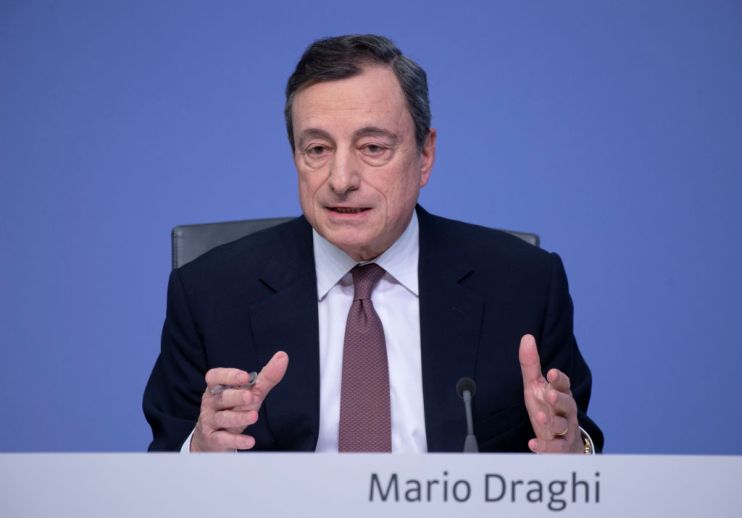ECB turns stimulus taps back on with first rate cut in three years

The European Central Bank (ECB) has unveiled a major stimulus package as it seeks to revive an ailing Eurozone economy, cutting interest rates for the first time in three years and restarting its giant bond-buying programme.
Read more: German to tumble into recession, says Ifo think tank
However, in his penultimate rate-setting meeting as ECB president, Mario Draghi said in his strongest terms yet that the onus is now on governments to boost stubbornly low growth and inflation.
At its governing council meeting in Frankfurt, the central bank cut its deposit rate – the interest banks receive on excess cash kept at the ECB – by 0.1 percentage points to minus 0.5 per cent.
To mitigate the effects of negative rates, which mean banks pay the ECB to hold their cash, “a two-tier system” will be launched in which part of banks’ excess liquidity will be exempt from the charge.
Under the restarted bond-buying programme, known as quantitative easing (QE), the ECB will buy €20bn of mainly government bonds each month from November and will continue to do so until inflation rises to two per cent.
The inflation-linked promise “is as good as a QE forever,” said Janus Henderson’s Andrew Mullner. “The parallels to Japan are clear,” he said, referencing the country’s decade-long struggle with anaemic growth and inflation.
The stimulus package comes as the Eurozone economy falters. Draghi downgraded the ECB’s growth predictions and said inflation is slated to drop to one per cent in 2020, half the ECB’s target.
In a press conference, Draghi blamed the slowdown in growth and inflation on “the prevailing weakness of international trade in an environment of prolonged global uncertainties”.
The euro fell as much as 0.7 per cent against the dollar following the announcement, but has since rebounded. US President Donald Trump responded furiously, tweeting: “They are trying, and succeeding, in depreciating the Euro against the VERY strong Dollar, hurting U.S. exports.”
Draghi used his press conference to make clear that central bank actions on their own were not enough to breathe life into the Eurozone economy.
Read more: Eurozone industrial production drops again in July
“Fiscal policy should become the main instrument” to boost inflation and growth, he said, and encouraged the surplus-running Dutch government to activate its €50bn investment programme.
(Image credit: Getty)